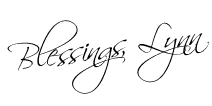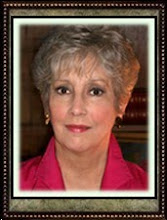Sunday, May 16

Don’t give a place for the enemy to make himself comfortable! In other words, don’t make a spare room available for him to bunk in, like Eliashib did for Tobiah during the time of Nehemiah.
As King Artaxerxes’ cupbearer, Nehemiah was more than just one who guarded against poison in the king’s cup. Being a cupbearer meant he was an officer of the household, a trusted servant, holding rank and importance. Often chosen for personal beauty, a cupbearer held a position of great influence and confidential nature, giving him frequent access to the royal presence.
When Nehemiah learned of the deplorable condition of Israel after their return from exile, he asked King Artaxerxes to allow him to repair the broken down walls and the burned out gates in Jerusalem. So, the king appointed him governor of Jerusalem and he went to rebuild.
At one point during the rebuilding of the wall, Nehemiah left to return to the king, but, while he was gone, something happened.
The high priest, Eliashib, who had authority over the storerooms in the temple and related to Tobiah, “prepared for [Tobiah] a large room, where previously they had stored the grain offerings, the frankincense, the articles, the tithes of grain, the new wine and oil, which were commanded to be given to the Levites and singers and gatekeepers, and the offerings for the priests.” (Neh. 13:5 NKJV)
Just as God’s people made a golden calf while Moses was away, so the substitution of the unholy for the holy took place while Nehemiah was away.
Eliashib (meaning ‘God will restore’) veered from his consecrated position and scooted up close to one who had ties with the enemy. His relationship of being an in-law of Tobiah (Eliashib’s grandson had been allowed to marry Tobiah’s daughter, Neh. 13:28) was enhanced by his willingness to provide a place for evil to reside.
More than just being chummy, Eliashib allowed himself to be allied with the wrong companion.
Upon Nehemiah’s return to Jerusalem, he discovered the evil Eliashib had done, and he said, “I was furious and threw out all of Tobiah’s belongings. I gave orders for the rooms to be ritually purified and for the Temple equipment, grain offerings, and incense to be put back.” (Neh. 13:8-9 GNB)
When the walls of your life start to crumble around you, do you allow, like Eliashib, a comfy spot for the enemy and his spiritual robbers to sneak in and remove all the holy things? Do you align yourself with the wrong companions?
The enemy has no access unless we answer the door when he comes calling. Once he gets his foot in the door, he welcomes all his negative, destructive relatives: Sister Unbelief, Brother Cowardice, Grandpa Doubt, and Aunt Despair.
Or do you do like Nehemiah and throw out the unholiness, purify your temple, put back the holy things, and secure those walls that have broken down?
“Above all else, guard your heart, for it is the wellspring of life.” (Prov. 4:23 NIV)


































